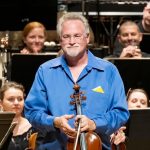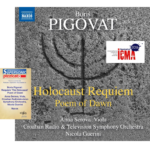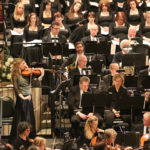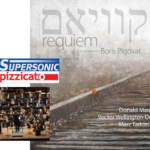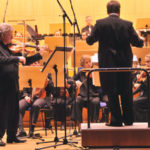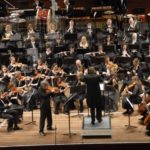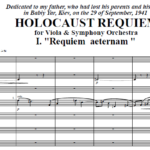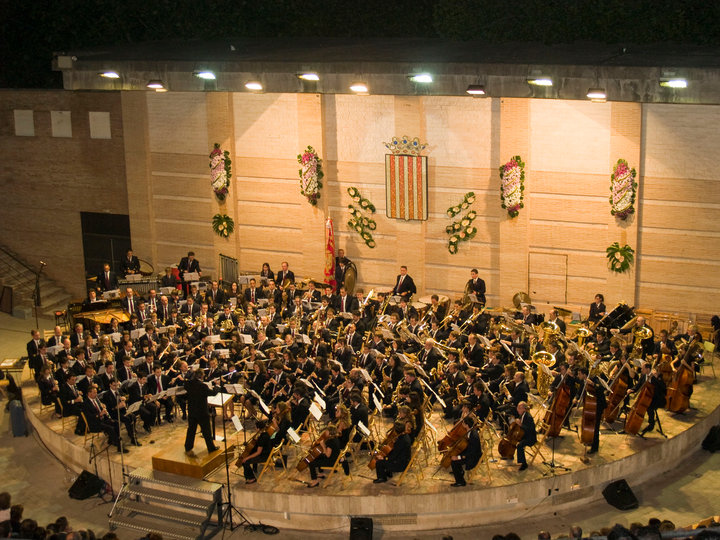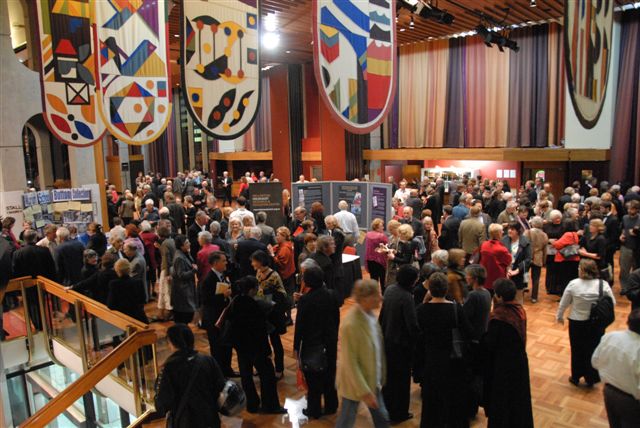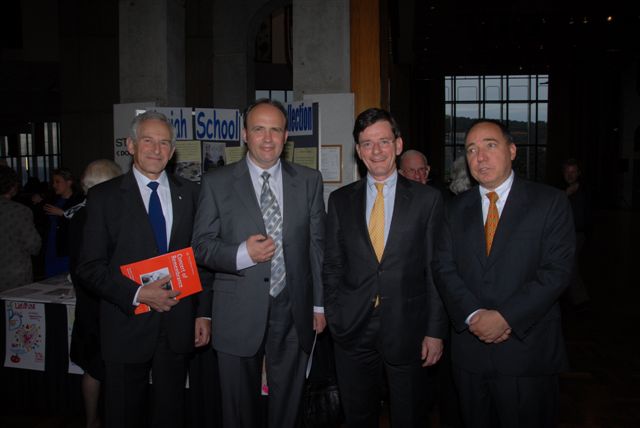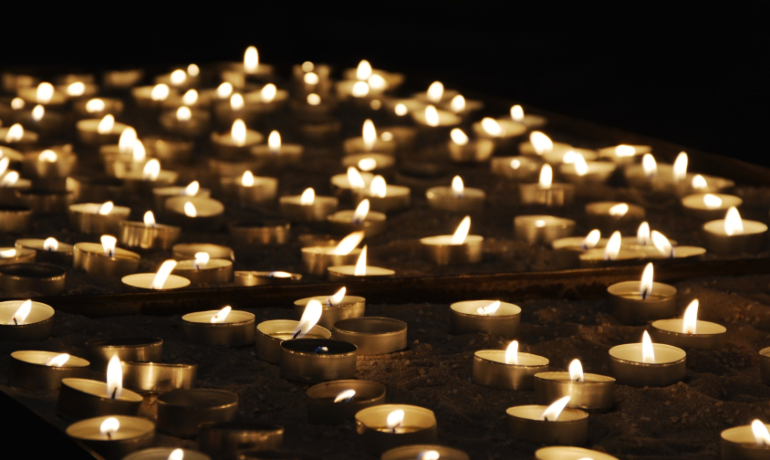
Author: Boris Pigovat

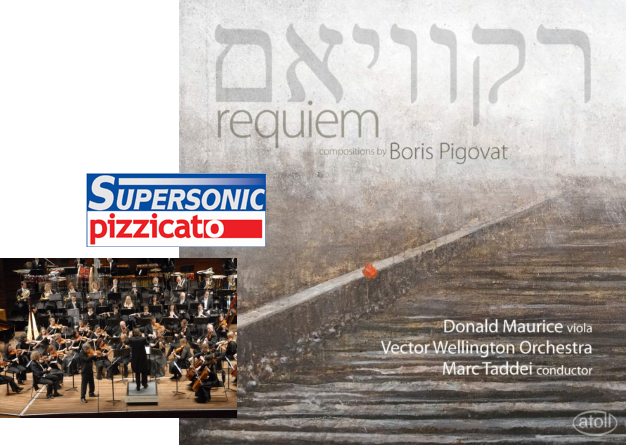
Nov, 2010: Launch of "Requiem" CD by Atoll, New Zealand
In November 2010, two years after the performance of Requiem at the the Concert of Remembrance for Kristallnacht 1938 at Wellington, a live recording of the concert was released by Atoll. This recording also includes three of my other pieces, featuring my dear friend, Donald Maurice (viola), and other great performers. The CD includes the following pieces:
Prayer for Viola and Piano
Donald Mautice, Viola
Richard Mapp, Piano
Silent Music for Viola and Harp
Donald Maurice, Viola
Carolyn Mills, Harp
Nigun for String Quartet
Dominion String Quartet
Dwight Pounds reviewed the disc in the Journal Of The American Viola Society, he writes:
Completing the album and complementing the Requiem musically and emotionally are three small ensemble compositions, each by Boris Pigovat. The very dramatic and tragic Prayer was written the same year as the Lux Eterna (1994) and in fact shares at least one common theme. Silent Music, known in Hebrew as Nerot Neshama (Candles of the Soul), was written in 1997 in response to a particularly vicious terrorist attack. In Nigun, conceived originally for string orchestra, Pigovat’s goal is to give “expression to the tragic spirit which I feel in traditional Jewish music” by giving homage to the style and spiritual atmosphere of ancient tunes, but without quoting traditional melodies.
In 2012, the Requiem CD was awarded a Supersonic Award by the Luxembourg classical music magazine Pizzicato.
Below are some samples from the CD.
Live recording of "Requiem" (samples)
Donald Maurice, Viola
Mark Taddei, Conductor
Vector Wellington Orchestra
Part 4 “Lux Aeterna” published by Atoll in YouTube
Prayer for Viola and Piano (samples)
Donald Maurice, Viola
Richard Mapp, Piano
Silent Music for Viola and Harp
Donald Maurice, Viola
Carolyn Mills, Harp
Nigun for String Quartet (samples)
Donald Maurice’s solo playing vividly captures the music’s gamut of supplicatory emotion, while Marc Taddei and the orchestra provide an accompaniment richly-mixed with ambiences of faith and trust, doubt and fear.
Wellington, NZ
This is a most extraordinary release. I guarantee it contains music like you’ve never heard before and that will leave you emotionally shattered and physically drained. …the performance and the recording are stunning, impactful, and overwhelming.
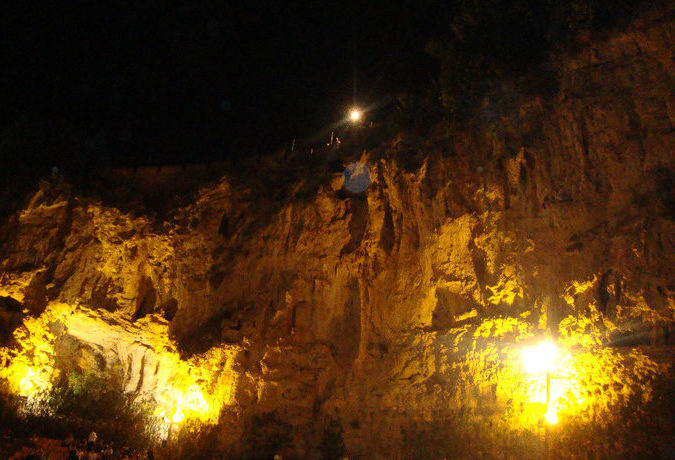
Aug, 2010: Wind of Yemen at Mano a Mano, Bunol, Spain
- Duration: ca. 18 minutes
- Picc, Fl, Ob, Bsn, P.Cl, 3 Cls, A.Cl, B.Cl, A.Sx, T.Sx, B.Sx, 4 Hns, 3 Cnts, 2 Tpts, 3 Tbns, Bar, Tba, Str. Bass, Timp, Perc (4-5)
The symphonic poem Wind of Yemen for Symphonic Wind Band was performed at Mano a Mano festival, in August 2010 in Bunol, Spain, by the CIM La Armónica de Buñol (Valencia), conducted by Frank De Vuyst.
I was excited to receive an invitation to that event and to have an opportunity to work with such great performers!
More words are redundant, just listen to the recording from the concert, below.
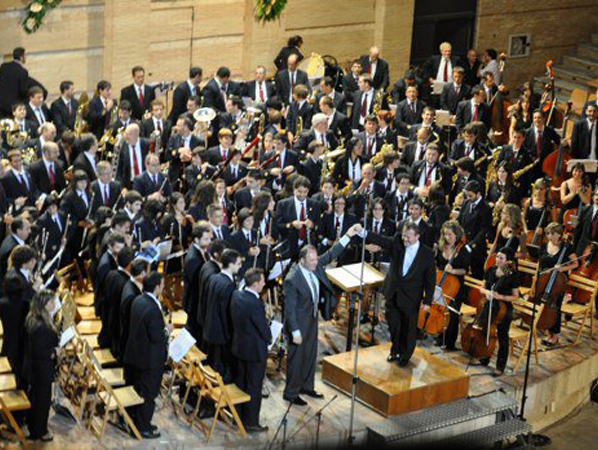
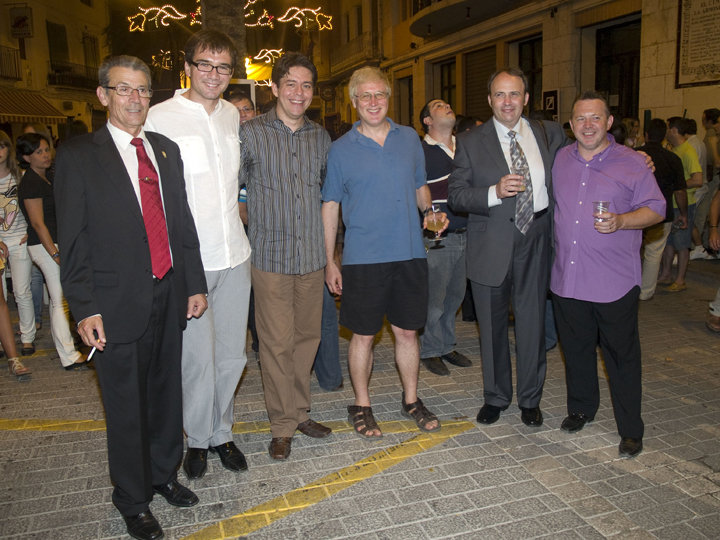
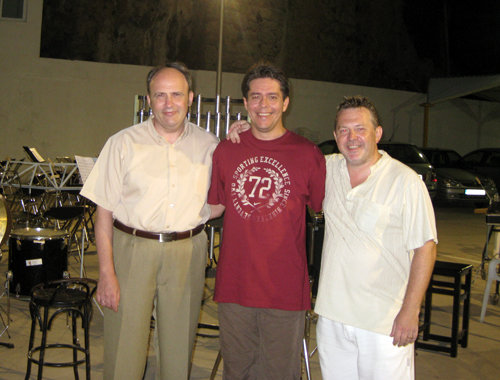
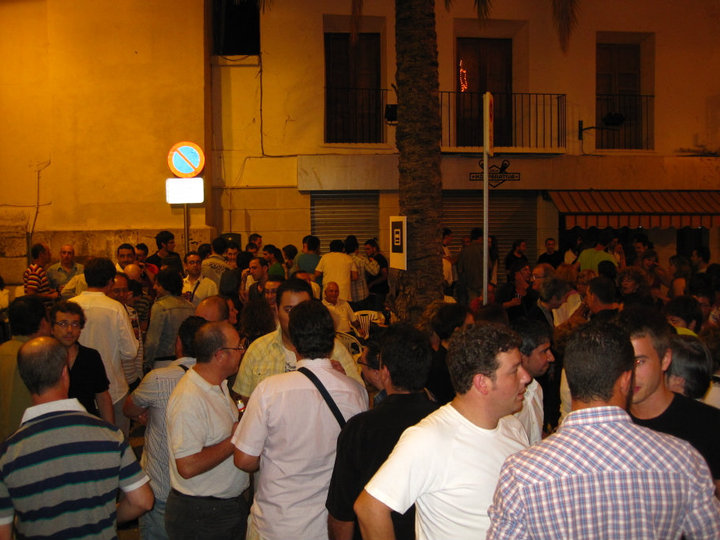
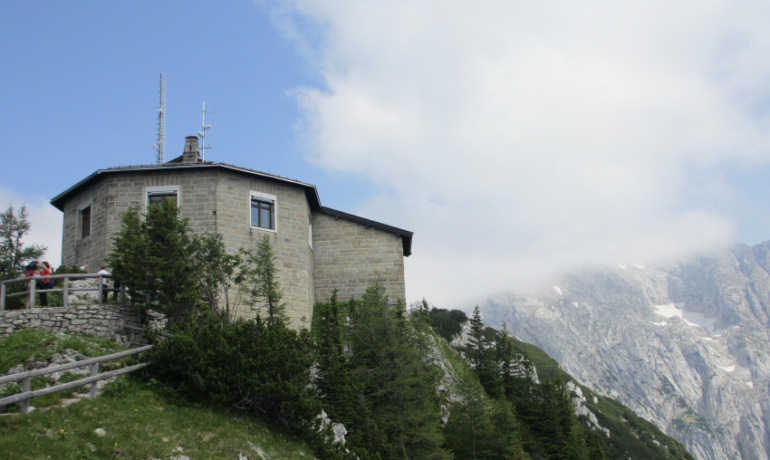
Lest We Forget (2009)
For Symphonic Wind Band / For Symphony Orchestra
- Duration: ca. 16 minutes
- SWB: Picc, 2 Fls ( = Picc. 2,3), A.Fl, Ob, Bsn, P.Cl, 3 Cls, B.Cl, 2 A.Sxs, T.Sx, B.Sx, 4 Hns, 4 Tpts, 3 Tbns, Bar, Tba, Timp, Perc (4-5).
- SO: Picc, 2 Fls ( = Picc 2, 3) 2 Obs, Eb Cl, 2 Cls, B.Cl, 2 Bsns, C-Bsn, 4 Hns, 3 Tpts, 2 Tbns, B. Tbn, Tba, Timp, Perc, Hp, Str.
Lest We Forget is a tone poem that begins with narration of the following text:
It was as in a dream:
I was standing at the top of the mountain and watching down at the Alpine valley. The view was marvelous – the green meadows surrounded by groves, small houses and herds. The pure mountain air rang as the most wonderful and fascinating music. Calm and serenity reigned at that corner of Paradise.
Suddenly I shuddered, because the name of the place I was standing was Kehlsteinhaus (the Eagle’s Nest). From this place had crawled out into the world a monster that brought suffering, torment and death to millions of people. This monster defiled and contaminated the all that it had touched; its stink poisoned the pure air. It was an absolute evil – self-satisfied, impudent, triumphant and bloodthirsty. This evil devastated the wonderful world that was full of Hope, turned it into the valley of weeping, the valley of sorrow, pain and tears.
If we forget about it, the monster will come back.
I conceived the composition in 1999, , but it took me about 10 years to complete it.
In Hebrew, I named it Lo Tishkach! (Do not forget!); these words conclude the verse about Amalek from Deuteronomy (25:19).
That was also how I initially named the piece in English. But later I decided to rename it Lest we forget, a phrase that is inscribed on a monument for Holocaust victims that I was in Wellington.
The poem was written for symphonic wind band. In February, 2010, Michael Delman premiered it with the symphonic wind band of the Petah-Tikva Conservatoire.
In 2010, I prepared a version for symphony orchestra, which has not yet been performed.
Below is the recording from the premiere.
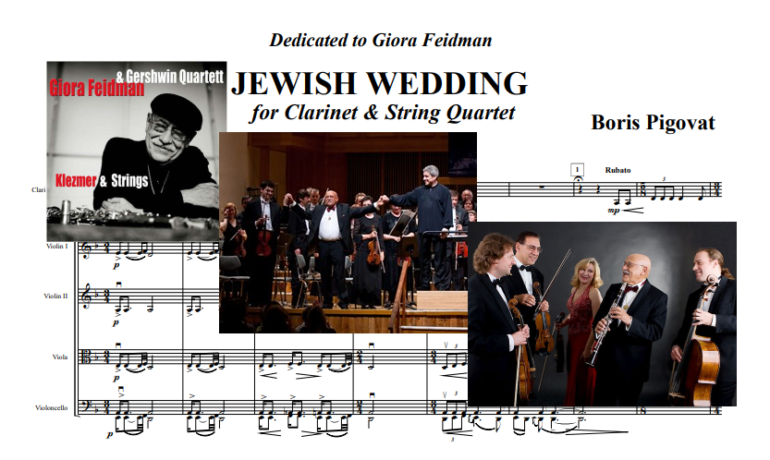
Jewish Wedding / Tzfat (2002 - 2008)
- Duration: ca. 10 minutes
In 2001 I met Giora Feidman, a world-wide famous clarinetist and performer of klezmer music. He gave me a couple of his CDs. I was so impressed by his performance, that I decided to write a piece in klezmer style, a kind of klezmer rhapsody, and to dedicate it to him.
As a composer-in-residence at the Petach-Tikva Conservatoire, I was committed to write a piece for trombone and wind orchestra.
I decided to write this piece as a klezmer rhapsody and to name it Tzfat (Safed), the name of a city where klezmer music festivals take place yearly.
Tzfat for trombone and wind orchestra was written and performed in 2002 (see recording, below).
In 2004 I prepared a version of Tzfat for violin and string orchestra, which was also performed (see recording, below).
In 2008 I met Giora Feidman again, and he listened to Tzfat. He loved the composition, and he asked me for two additional versions of it: one for clarinet and string orchestra and another for clarinet and string quartet. He also suggested to rename the piece to Jewish Wedding, arguing that, outside of Israel, people are unfamiliar with Tzfat.
The version for clarinet and string orchestra was performed by Giora with a string group of the Jerusalem Symphony Orchestra (see recording below). The version with string quartet was performed the with Gershwin Quartet more than 30 times – in Germany, Austria, Holland, Switzerland, Russia and Ukraine. See below for a YouTube video from a performance in the Berliner Philharmonie concert hall.
Later, at the request of other performers, I prepared additional versions of this Jewish Wedding / Tzfat:
- for Trumpet and Strings (arranged for ensemble of members of Israel Philharmonic Orchestra)
- for Piano Trio
- for Piano Quintet
- for Clarinet & Saxophones Quartet
- for Clarinet, Cello & Piano
- for Clarinet, Violin & Piano
- for Saxophone, Violin & Piano
In Israeli Sketches, a suite for wind orchestra, I re-used Tzfat content, but made it purely orchestral without any solo instrument.
Looking back to 2001, when I met Giora Feidman for the first time, I could not have imagined such exciting developments!
Below are the recordings.
Tzfat for Trombone and Wind Orchestra
Tzfat for Violin and String Orchestra
Ramat Gan Chamber Orchestra
Ohad Cohen (a 14-year old boy), Violin
Aviv Ron, Conductor
Ramat Gan (Israel), 2005
Jewish Wedding for Clarinet and String Orchestra
Jewish Wedding for Clarinet and String Quartet
Giora Feidman and
Gershwin Quartet
Recorded for Klezmer & Strings CD, release by Pianissimo Musik
2009
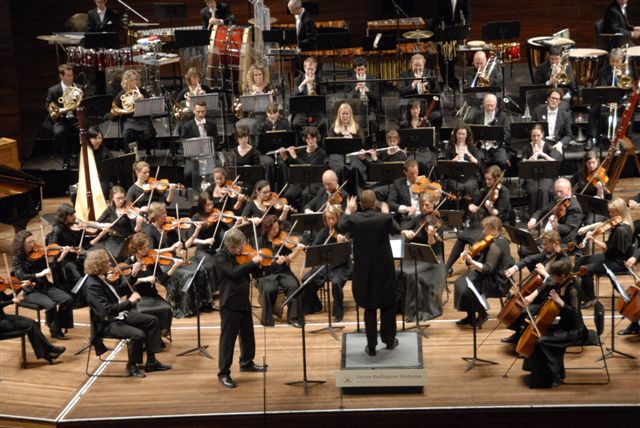
Nov, 2008: Concert of Remembrance of 70th Anniversary of Kristallnacht, Wellington, New Zealand
Holocaust Requiem was performed for it’s second time at the Concert of Remembrance for the 70th Anniversary of Kristallnacht.
The outstanding performance by violist Dr. Donald Maurice, Professor of Music at the New Zealand School of Music in Wellington, conductor Mark Taddei, and Vector Wellington Orchestra, was widely reviewed by local and international media.
Later, Donald Maurice remembered:
The performance was in 2008 but is indelibly etched into my memory. Many people were in tears. I myself said, ‘I must not cry!’” Commenting on the composition’s future and potential for effecting change, he observed, “It needs to be performed often as a reminder of the effects of war and the circumstances that precipitate one culture wanting to dominate or annihilate another.
A live recording of Requiem from the event was released by Atoll, in November 2010, with other pieces of mine.
Here is an audio recording of an interview given by Donald Maurice and Marc Taddei to Radio New Zealand (Nov 2008).
Below are some samples of that amazing performance and some photos from the event.
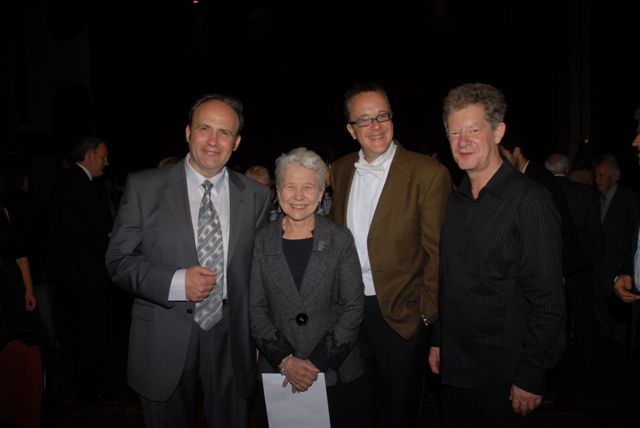
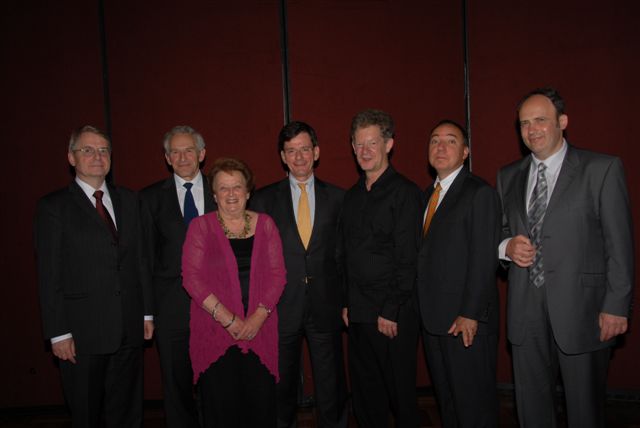
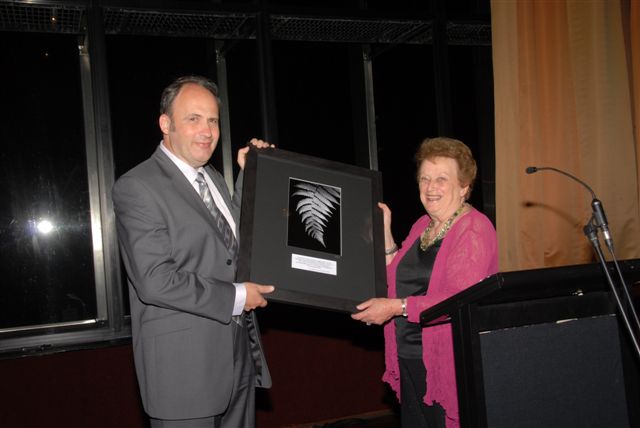
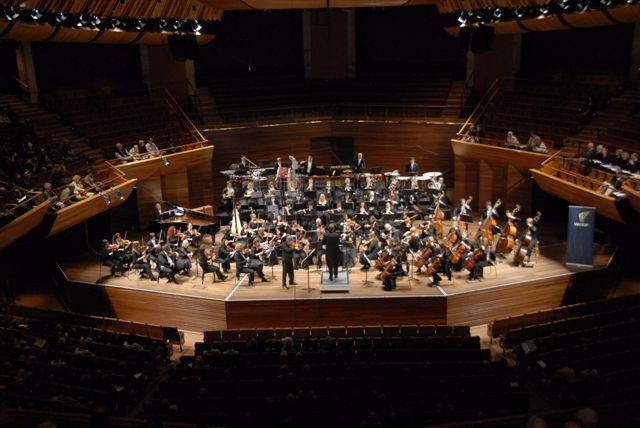

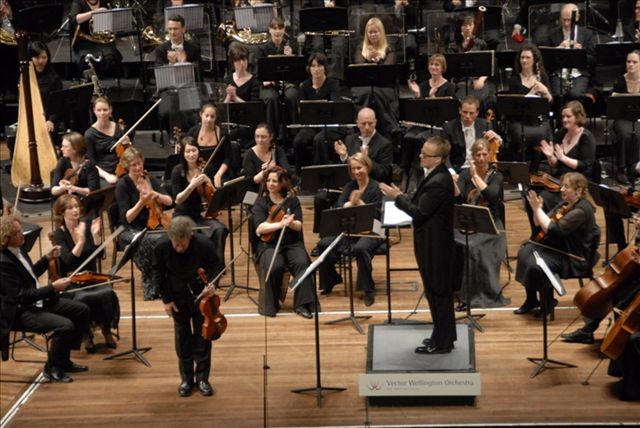
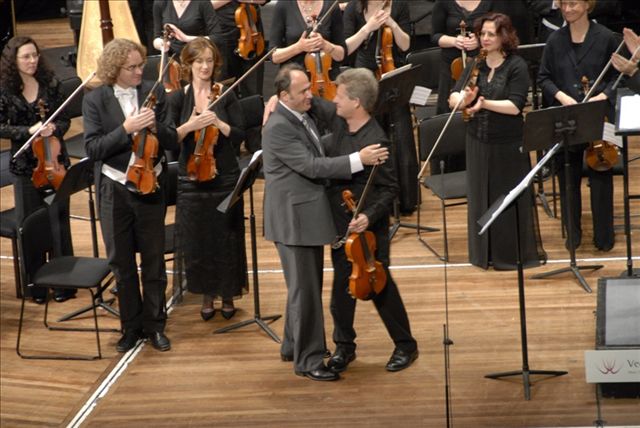
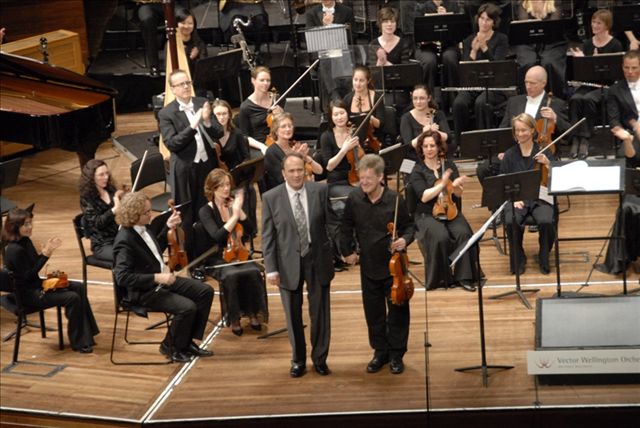
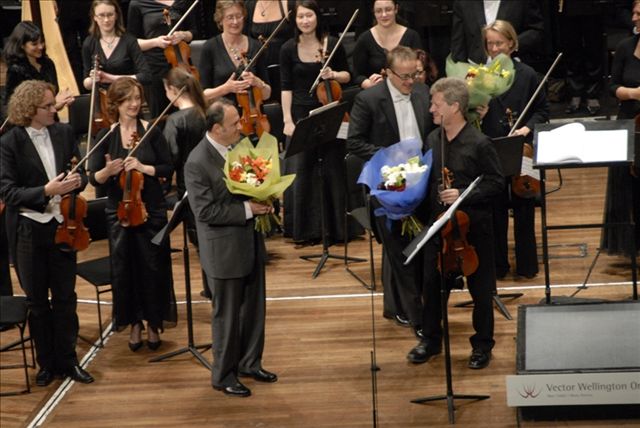
Requiem “The Holocaust” is not music for the faint of heart. The listener is drawn inexorably into the unfolding tragedy... Pigovat runs a stylistic gamut from tonal to expressionistic with hints of Berg and Shostakovich as he gradually unfolds his nightmare. Though instrumental throughout, there are times one can hear “Re—qui-em” among the many busy layers of musical texture.
The Music is harrowing and tense, and very Russian in sound. Echoes of contemporary composers such as Denisov, Kanchelli and Gubaidulina can be heard, as well as the inexorable thread of Shostakovich in the Dies Irae, but the voice of the composer remains highly individual. Balancing the violence, anger and tension is the conciliatory beauty of the Lux Eterna that rounds out a work of deeply felt power.
Using purely orchestral forces this 46-minute symphonic-concerto encompasses ear-splitting anguish, horror and confusion -- tolling tintinnabulations mark the outset of unspeakable atrocities while abject grief is heightened by sonorous lamentations of the solo viola; a role of unusually formidable demands.
Pigovat's music is evocative and distuibing in its depiction of the Holocaust. With styles reminiscent of other Russian composers, including the rich melancholy of Shostakovich the
compositional style is still distinctly Pigovat's own.
Intense and strongly assured it is a life-affirming piece that makes a telling statemen with subtlety.
